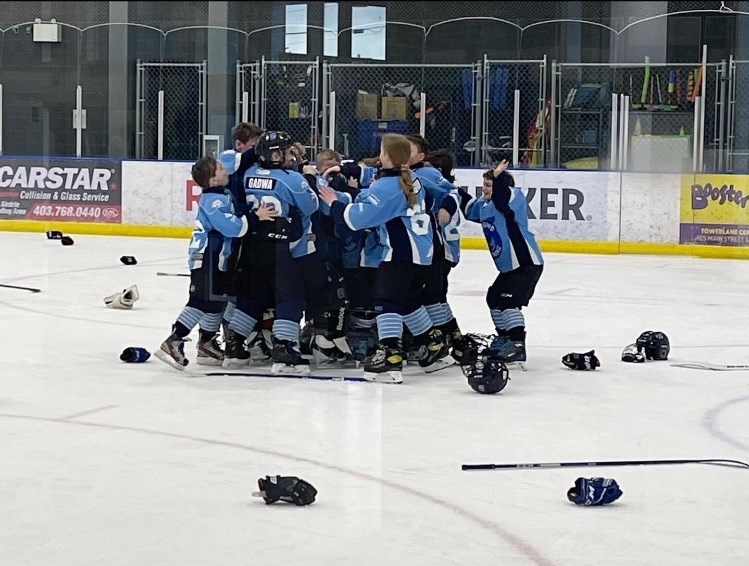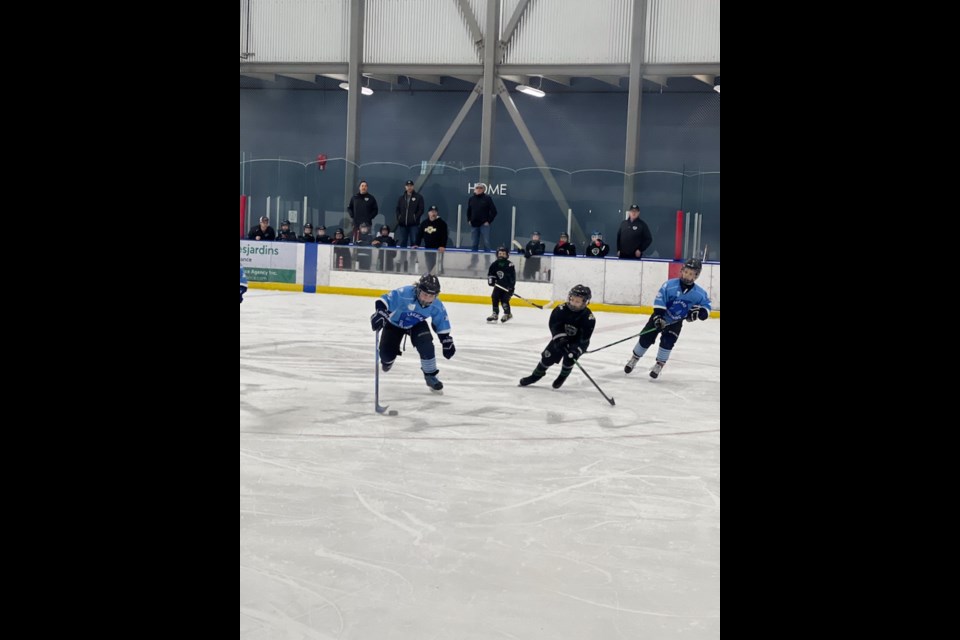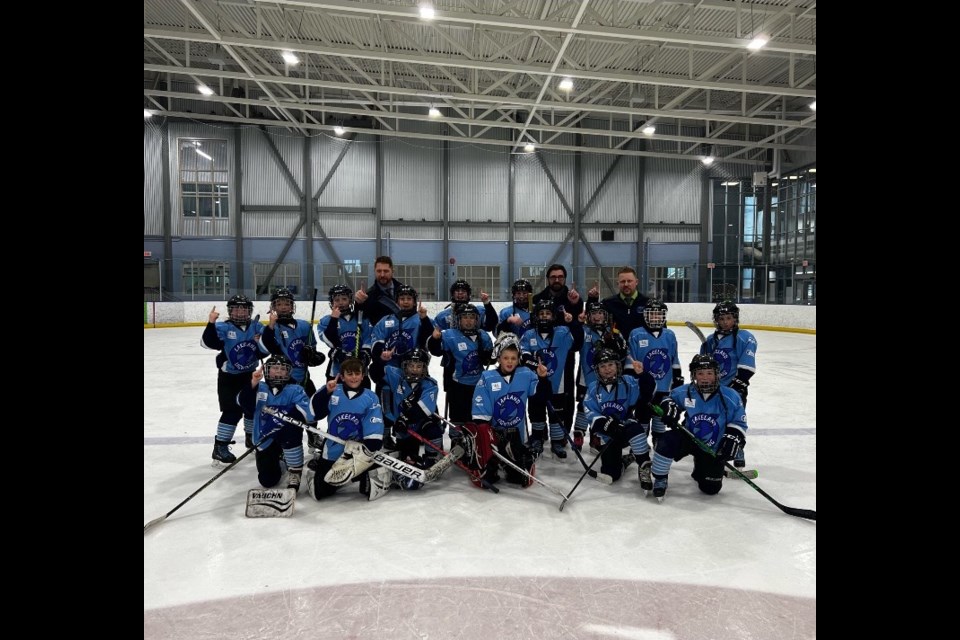LAKELAND – Developing from a spring tournament-only league just three years ago, the Lakeland Lightning Hockey Academy has grown to offer an elite U11 and U9 regular hockey season program that competes in Alberta’s Premier Hockey League.
Relatively new to the league and its format, the U11 team finished in second place in this year's regular season.
“Throughout that time, with commitment from our players and our families in a good, well-structured program we have not only become an average team, we are an elite team within our program,” says Joel Miller, the head coach for both Lakeland Lightning teams.
Running out of the RCMP Hall Arena in Glendon and operating outside of local minor hockey leagues, the private Lakeland Lightning teams draw players from the Bonnyville and Cold Lake area, Elk Point, Glendon, Lac La Biche and even as far as Wainright.
The academy’s intention is to offer young boys and girls the opportunity to compete with other players who are committed to developing, improving and showcasing their hockey skills in a younger age bracket.
But more than that, Miller says the program is meant for players who want deeper growth in their hockey program. The Lightning’s academy works to develop team building and skating skills, but off the ice the team is focused on preparing youth for what to expect in an elite hockey program.
“Yes, it has to do with the physical components and building up our cardio, but really the main reason we do that is to show healthy living, and (to) show those kids how to build a good foundation for moving forward,” Miller explains.
Not only do players participate in tournaments, team-building events, and off-ice training, but they take part in community volunteering initiatives as well.
“The smallest thing that we can do (is) to teach these kids now to give back to the community and that is what it takes to have a strong community – it doesn't matter how old you are, you need to give back to society.”
As an alternative to minor hockey leagues, the Lakeland Lightning Hockey Academy is "giving kids a different option, a different outlet that (wasn’t) available within our region but is available in a lot of other cities and regions,” he says.
When the Lightning teams are not hosting their own showcase style tournaments, they are regularly travelling across the province to compete against other elite teams, some travelling in from British Columbia and Saskatchewan to participate in the premier tournaments.
“What it does is it allows these kids to see the other talent from some of these other communities and regions and cities that they may not get to see just staying local at a younger age,” Miller says. “It really opens them up to what else is out there. And ideally, those other programs are focused in on higher caliber and ahead-of-the-curve skilled players.”
Across North America, the private hockey format is growing in popularity with a lot of momentum behind it, he notes. “You are seeing a lot of the top elite talent going to a lot of these programs because it's giving families what they are looking for.”
And while Miller says there is no promise players are going to head to the NHL, he does believe the Lakeland Lightning offers a well-structured program that encourages players to try their best.
“We always say practice-in-kind, play-in-kind, so if we can get those kids together, you're always going to be pushing each other, you're only going to get better.”
He continued, “At the end of the day, we're all about team – it's a team first mentality and yes, you will become a better hockey player, but ultimately, our goal is to make better human beings that give back to society while also being a part of a great hockey program.”
Dollars and cents
Operating as a private team, Miller reaffirms the organization’s commitment to get dedicated players on the ice.
“Anytime you hear private you do think dollars and cents,” he acknowledges. However, with the strong community support from sponsors across the region, the hockey team has been able to keep costs on par with many minor hockey clubs in the area.
Among other elite teams, Miller says, “Our program is one of the cheapest, if not the cheapest program compared to anybody that we play against.”
Another key difference that separates the Lakeland Lightning from other teams is that the program is not done by invite only or through scouting.
“Our program is open to the public, open to any kid in the region, anyone has the opportunity to come and skate and go through evaluations and an ID skate to become a part of our team and our season,” elaborates Miller.
Other sponsors and parents have also offered to help where they can to support players who meet the teams' criteria but may struggle to cover the costs associated with the program.
“Our criteria are essentially hardworking, coachable, good attitude, and a committed player and family to support that player,” he outlines.
“It also shows the Lakeland region, stepping up and believing in this type of program and giving these kids a different alternative. They see the opportunity for these kids to move on and thrive in programs like this and step out of the norm and potentially reach their goals.”
Behind the scenes
And while 34 young athletes are putting the work in on the ice, dedicated parents and community volunteers give countless hours to make the program successful.
To run both teams, there are three assistant coaches and a manager for each team, including two non-parent coaches that give their time and energy for the Lakeland Lightning program. Alex Kaine, who is one of the teams’ goalie coaches, and Jeremy Poole who is an offensive coach, are regularly on the ice working with and coaching the kids.
"We do it because we see these kids having the ability to go to new places and play different teams,” says Miller. He adds, the reason the program has seen continued success is because there isn’t anything else quite like it in the area.
“There wasn't really anything being offered in our local area for that age group, and we want to give our kids everything we can. But at the same time, we want to make sure that they're earning it and that they are putting the work in.”





